Once considered an agricultural byproduct with little economic value, corn cores were often discarded or sold cheaply after the kernels were removed for food or animal feed. In the past, corn cobs were often overlooked, with the kernels taking center stage for human and animal consumption.
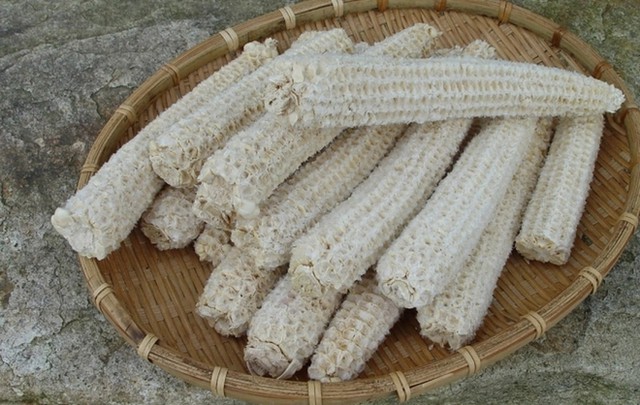
Corn cobs in Vietnam are often considered waste, left in the fields or sold for less than 1,000 VND/kg
In rural Vietnam, corn cobs were often piled up in the fields, exposed to the elements, and left to rot. Some were used as firewood, but their tendency to burn quickly and produce excessive smoke made them less desirable.
However, the advancement of technology and market demands have transformed the fate of corn cobs. Once considered waste, corn cobs are now a valuable resource in various industries, from renewable energy to functional foods, and a potential export commodity.
Functional Foods
Corn cobs contain beta-sitosterol, a compound that helps lower cholesterol levels by inhibiting cholesterol absorption in the body. Beta-sitosterol also has anti-inflammatory properties and can support prostate health. In functional foods, corn cobs are utilized for their health benefits.
According to Hai Duong Newspaper, drinking water boiled with cleaned corn cobs can improve oral health, aid digestion, and create a sense of fullness.
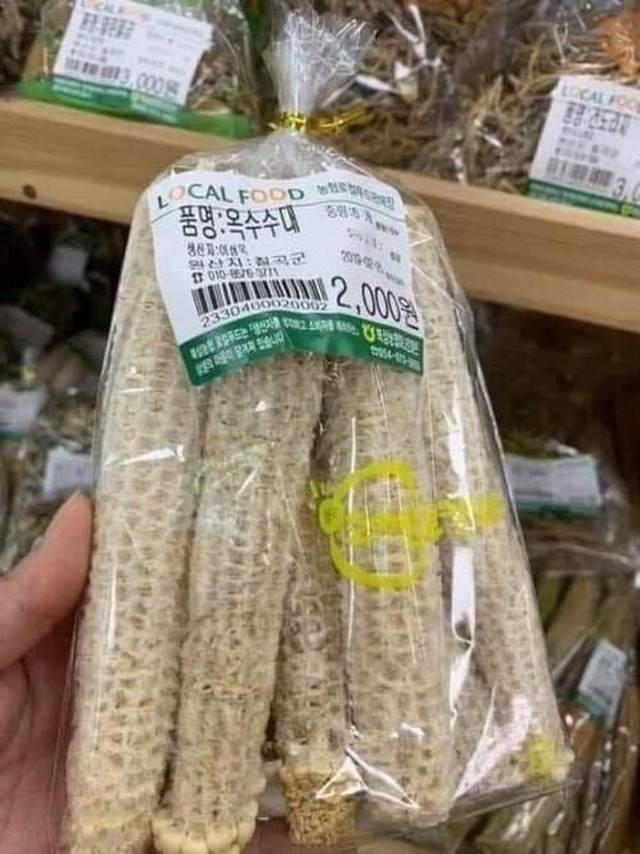
Corn cobs sold in a Korean supermarket
In South Korea, corn cobs are used to make a nutritious tea, which is then packaged and sold for approximately 37,000 VND per bag, each containing six cobs. This application has opened up a new market for corn cobs, especially in countries that prioritize natural health products.
Charcoal and Fuel Pellets Production
Corn cobs are also ground and used to produce charcoal and fuel pellets. Online trading groups buy and sell corn cobs nationwide. The price is around 2,000 VND/kg for whole corn cobs and 3,000 VND/kg for ground corn cobs.
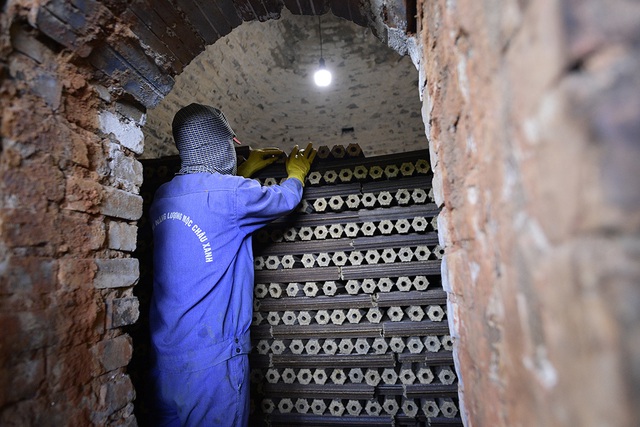
Corn cob charcoal
The ground corn cobs are then mixed with additives and molded into charcoal briquettes or extruded into corn cob fuel pellets (similar to straw pellets). These products are sold in the market for approximately 11,000 VND/kg.
Corn cob charcoal has several advantages, including a long burning time (over 3 hours), high heat generation, and low smoke and flame, making it a popular choice for industries and households alike. Son La province is currently a leading producer of corn cob charcoal in Vietnam.
Ethanol Production
Corn cobs are rich in cellulose, which can be broken down into glucose and fermented to produce ethanol, a type of biofuel that is environmentally friendly. Ethanol derived from corn cobs not only reduces reliance on fossil fuels but also contributes to sustainable development goals and addresses the growing global demand for clean energy.
However, there are challenges in producing ethanol from corn cobs on a commercial scale, and further research and improvements are needed to make the process feasible.
Export Potential and Economic Value
Vietnam has started to tap into the export potential of corn cobs, particularly to large markets such as China, Japan, and South Korea. An agricultural company in Long Bien, Hanoi, stated that they could supply hundreds of tons of ground and pressed corn cobs per month, meeting the standards for export to Japan and South Korea.
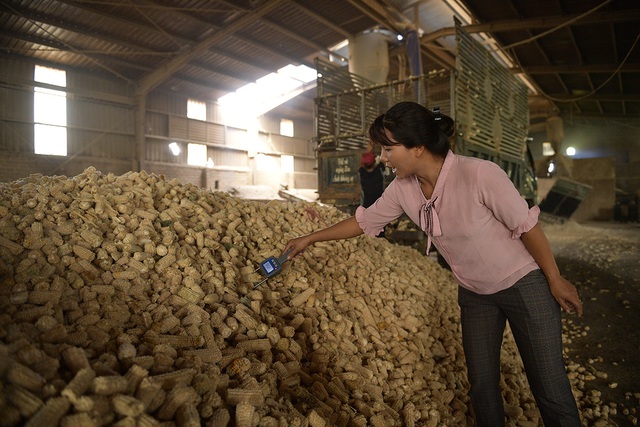
Corn cob charcoal factory in Son La
However, due to the lack of specific data on the volume and value of corn cob exports, it is challenging to accurately assess the market size and development potential. Nonetheless, with increasing demand from international markets and advancements in processing technologies, corn cobs hold promise as a significant economic resource.
“Miracle Cure” Health Supplement is Back with Wild Claims
Ho Chi Minh City’s Food Safety Department to enhance inspections of functional food production and trading activities in the near future.


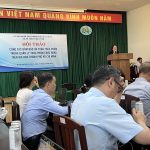

![[Photo Essay]: Experts, Managers, and Businesses Unite to Forge a Path Towards Sustainable Green Industry](https://xe.today/wp-content/uploads/2025/07/z678592918-218x150.jpg)












